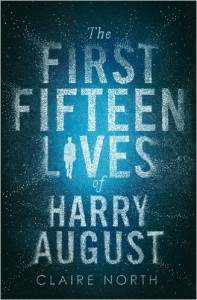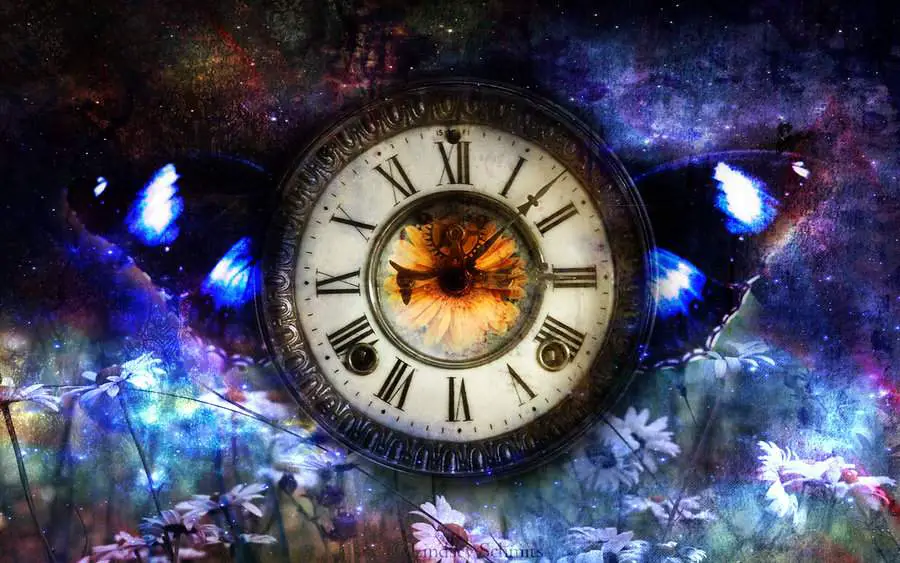The First Fifteen Lives of Harry August
Claire North
Redhook Books
Release Date: October 21, 2014
ISBN 978-0-31-163996-16
Harry August was born on January 1, 1919, on the floor of the ladies’ washroom of the train station at Berwick-upon-Tweed. His unmarried mother, who had been a kitchen maid at Hulne Hall before being turned out without references, died in childbirth. His biological father, Rory Hulne, who was married at the time, never acknowledged his illegitimate child, so the boy was instead raised by Patrick August, the groundskeeper of the Hulne manor.
Harry lived a somewhat unremarkable life, serving as an infantryman in WWII and returning to Hulne Hall to take over the groundskeeper position from his ailing adoptive father. Harry died of cancer in 1989, in a Newcastle hospital.
The second time Harry was born, again on January 1, 1919, again in the Berwick-upon-Tweed train station, his child’s body quickly retained all the memories of his first life and, unable to process this adult consciousness, he was committed at age seven to St. Margo’s Asylum for Unfortunates where he committed suicide six months later by throwing himself out of a third floor window.
Upon his third birth on January 1, 1919 in the very same train station as the first two times, with the memories now of two lives instead of one, Harry finally accepted that he was not, as it were, normal.
It was in his fourth life that he learned he was not alone.
They are known amongst themselves as kalachakra, those who “live our lives in circles.” They watch for each other to appear, and interact in the modern eras through a covert organization known as the Cronus Club. While none of them can travel through time beyond their typical span of years, messages can be passed between members by youngsters whispering information to those close to death, who then will take that message back in time with their rebirths, or passed forward, piggybacking from age to youth.
Harry receives such a message at the end of his eleventh life, as he lays dying of cancer (as he usually does if everything plays itself out). It came to him through the words of a seven year old girl, speaking to him at his bedside. In high German, she asks him to pass this message to the Clubs of his origin:
“The world is ending,” she said. “The message has come down from child to adult, child to adult, passed back down the generations from a thousand years forward in time. The world is ending and we cannot prevent it. So now it’s up to you.”
And then in response to Harry’s question, she whispers in his ear:
“The world is ending, as it always must. But the end of the world is getting faster.”
The Fifteen Lives of Harry August is an intriguing tale where death merely signals another beginning, where questions of playing God are more than merely philosophical musings, and where dangers can be centuries in the making – or the dissembling.
Author Claire North (a pseudonym for author Catherine Webb, who also writes under the name Kate Griffin) doesn’t mess around with trying to explain the hows or whys of Harry’s circular lives. They simply are. She also only fleetingly entertains speculation on how living a life over and over could wreak havoc with the “natural” progression of history via the butterfly effect. Small changes are tolerated and can even a source of amusement; after all, whilte the kalachakra’s lives are always the same, they do have a touch of fluidity to them. For example, Harry’s adopted mother does not always die on the same day, but the process is more or less the same as she succumbs to lung cancer when Harry is eight years old (which frustrates Harry, as he knows that her cancer is easily treatable – forty years into the future).
Harry’s own death can be assured through the development late in life of multiple myelomas and hastened by morphine drip, but his life may end earlier and by other means; he may even chose to end his own life in order to return to the past and start his cycle over without waiting for the inevitable end. Regardless, he will always return to January 1, 1919, and the Berwick-upon-Trent rail station.
But large changes are verboten, as they may – as the message for Harry portends – hasten the end of the world. Lives twelve through fifteen for Harry are spent trying to find the source of the threat, which obviously is a rogue kalachakra, and find a way to eliminate it. This proves to be exceedingly difficult, as the changes effected in one life compound the difficulties in making progress in the next, especially as there is of necessity a certain amount of time – childhood – where Harry must merely mark the years until he reaches an age where he can reliably continue his mission.
And besides, how do you stop someone who merely returns to his birth after death? The only real way to kill a kalachakra is to discover his (or her) point of origin, and make sure the birth never happens. (There is also ‘the Forgetting’ – a voluntary memory wipe of a distraught kalachakra, which does not actually kill but does allow for a “starting over”, with the next life one of complete innocence.) This is not an easy thing to do, especially since kalachakras know to keep their point of origin a highly guarded secret.
Setting aside some of the more pesky questions surrounding any kind of time travel – even circular travel – and the effect of changes on history, The First Fifteen Lives of Harry August is a very detailed novel, exploring philosophical and ethical questions, dancing around in history, developing and carrying out stratagems that play out over multiple lives even as the foundation of history changes underneath them. Yet Harry as the narrator is written in such an easy going, almost insularly charming way, that the big picture transcends into something incredibly personal. Harry is not always a good person, and he has been known to do bad things, but we always end up rooting for him, regardless.
The book, though, is anything but flippant. Horrible things happen, and even worse things threaten to happen; author North does not shy away from cruelty, pain or corruption. Life, regardless of how many times it is lived, is not easy, and sometimes is downright brutal. Yes, Harry does know love in some of his lives, and he also knows heartbreak, but that is not the focus of the story. What matters is not that which is fixed and fleeting, but that which stretches over many possible lives, what comes before and what will come after.
And what will always come again, if one is careful enough, and strong enough. And again. And again. It’s a fascinating take on a familiar theme, explored in an imaginatively way, and wonderfully executed. There is a good reason this book comes highly recommended and many book loving sites. It’s a very diverse yet coherent read.
~ Sharon Browning

